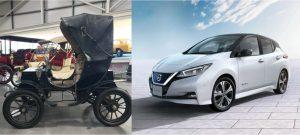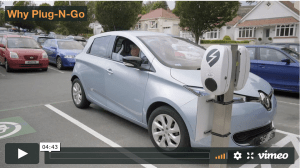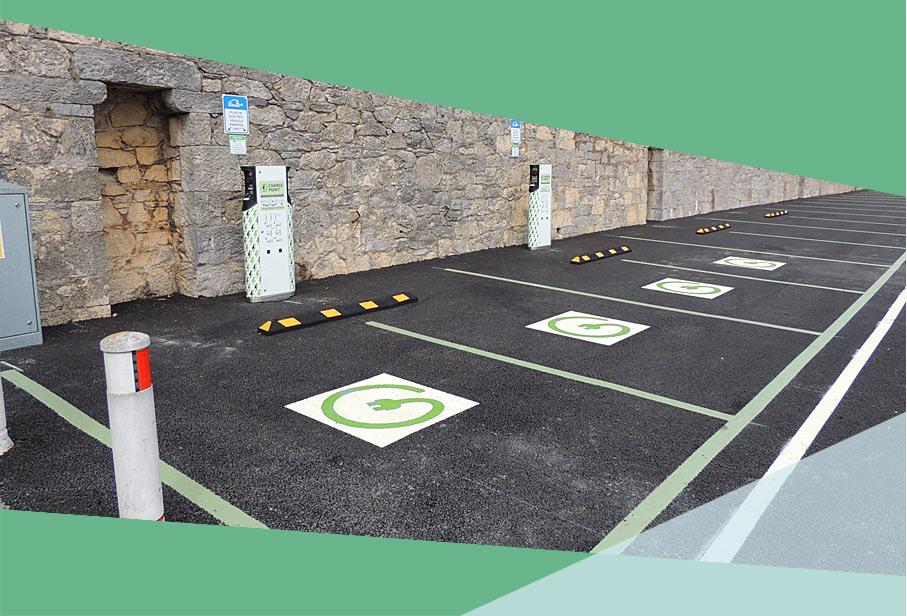Most people think that electric vehicles are a recent development. However in 1900 40% of all cars sold were electric (the balance was made up of 40% steam and 20% petrol). Also in 1900 most New York taxis were electric and there were many companies producing electric trucks. A taxi driver bought the car and rented the battery, which could be swapped for a fully charged one in a conveniently located depot.

Due to public concerns about climate change and with considerable nudging from Government, the electric vehicle is having a renaissance.
The sale of petrol and diesel vehicles (and hybrids) could be banned in the UK as early as 2032. But 64% of drivers say that lack of EV charge points available to the public is preventing them from buying an electric car. Of those that do take the leap, 94% still rely at least partly on public charging networks. (Source: Zap-Map)
Enter the Plug-N-Go Group which is making it easy for businesses across the UK to install charging stations. PNG’s goal is to install 3,000 EV charge points for public use in 5 years, at sites where drivers are already parking. They currently operate almost 60 charge points, with a further 198 in the immediate pipeline.
 Plug-N-Go offers a range of solutions including, for viable sites that are open to the public and where the site owner agrees to grant a lease, a funded solution, facilitating and covering the entire cost of the installation from start to finish with on-going support. Plug-N-Go then receives the charging revenue from our charge points for 10 years and pays over a 10% share of net operating profit to the site owner, by way of rental.
Plug-N-Go offers a range of solutions including, for viable sites that are open to the public and where the site owner agrees to grant a lease, a funded solution, facilitating and covering the entire cost of the installation from start to finish with on-going support. Plug-N-Go then receives the charging revenue from our charge points for 10 years and pays over a 10% share of net operating profit to the site owner, by way of rental.
Plug-N-Go’s USPs are :
• PNG specializes in destination charging. Destination charging is appropriate on sites where drivers spend between 1 and 3 hours, such as supermarkets, sports clubs, shopping malls and Local Authority car parks.
• PNG only operates fast charging AC chargers (and a very few low level rapid DC chargers). Fast chargers are typically 22 kWh. We do not operate rapid DC chargers (60 – 350 kWh) which are aimed at transit drivers e.g. on motorways, for three reasons : unit cost (typically £120,000 per installation compared to an average of £18,000 per installation for PNG’s fast charge points) ; electricity supply constraints ; and fierce competition from the large DC operators.
• PNG installs in large market towns, outside major cities. PNG’s business is based on establishing partnerships with site owners and avoids the cheek-by-jowl competition in the major conurbations.
• PNG is not a manufacturer of hardware. PNG is hardware agnostic, choosing the best, future-proofed hardware from a panel of manufacturers. This avoids expensive development costs and legacy problems.
Plug-N-Go are raising £250,000 through Crowdcube at a pre-money valuation of £3,250,000, which will give investors 7.14% of the company. The group holding company, Plug-N-Go EV Limited, has received EIS advance assurance from HMRC, meaning that eligible investors can receive 30% income tax relief and will receive further tax benefits on exit, provided they hold the shares for 3 years.
More details are available on Crowdcube.




